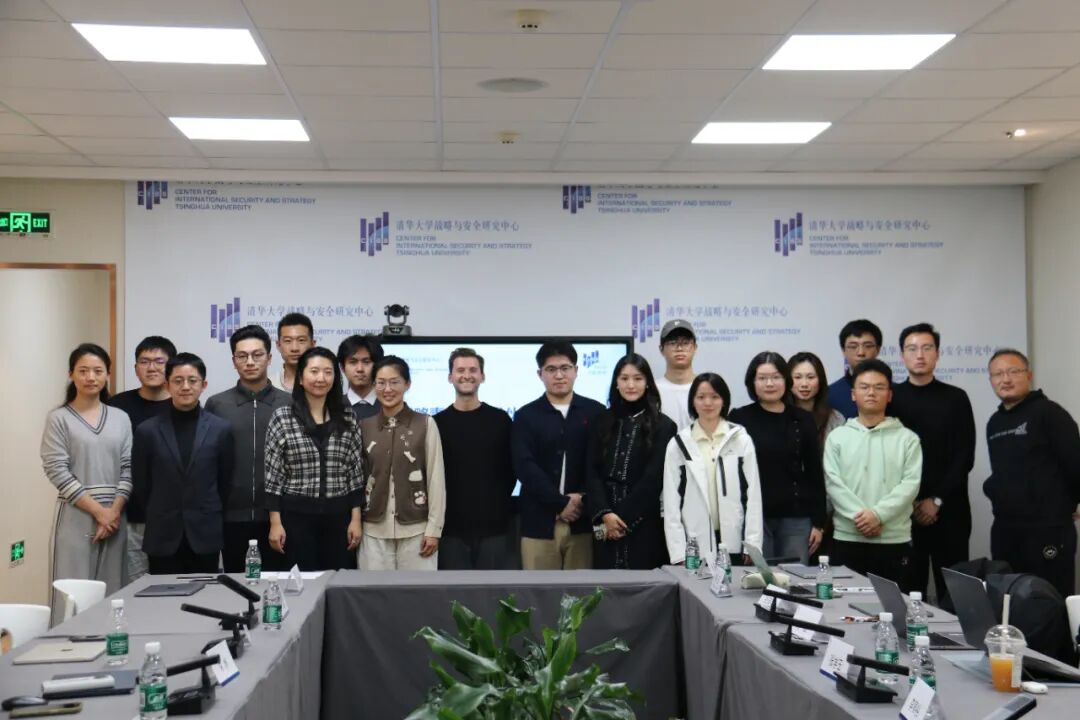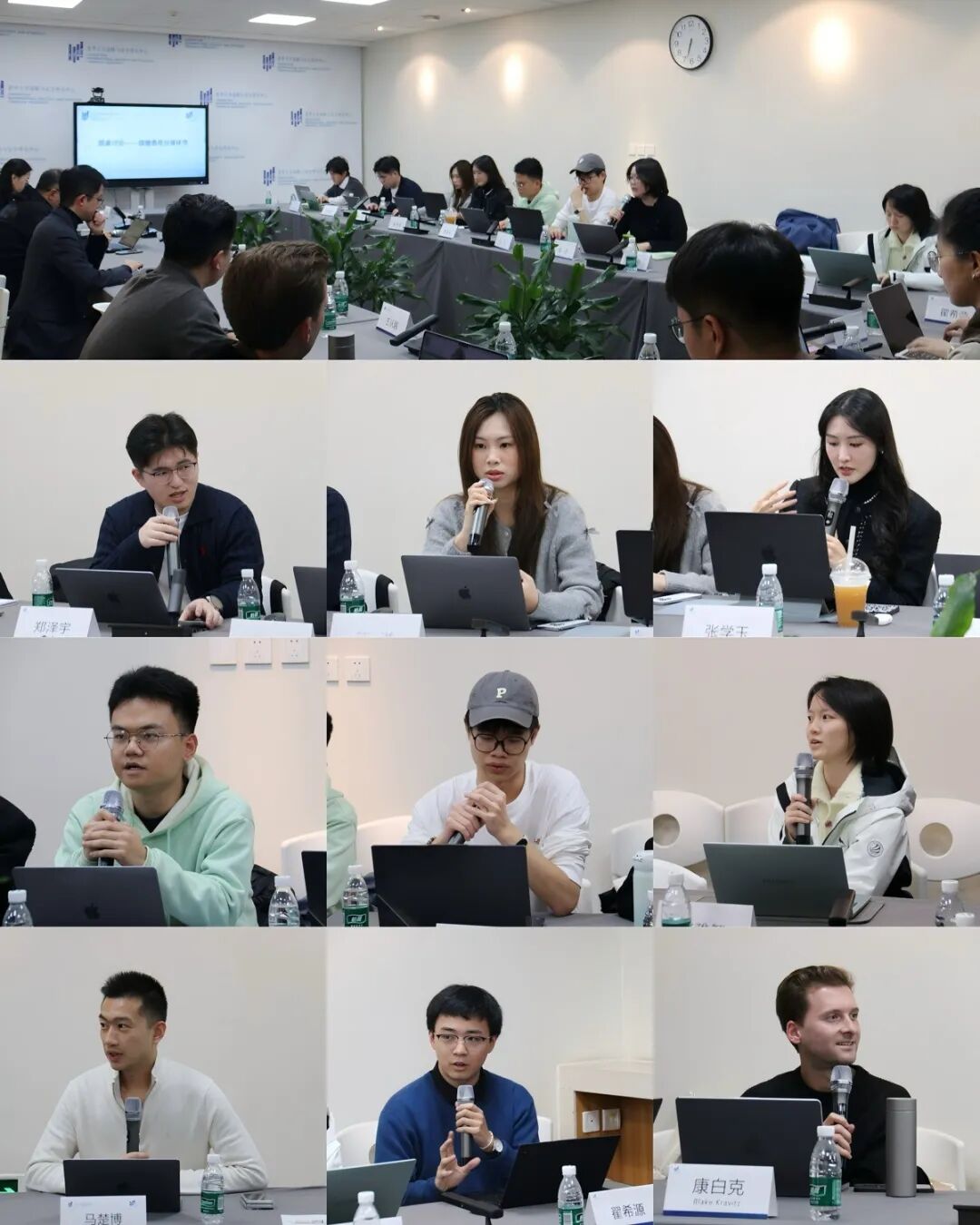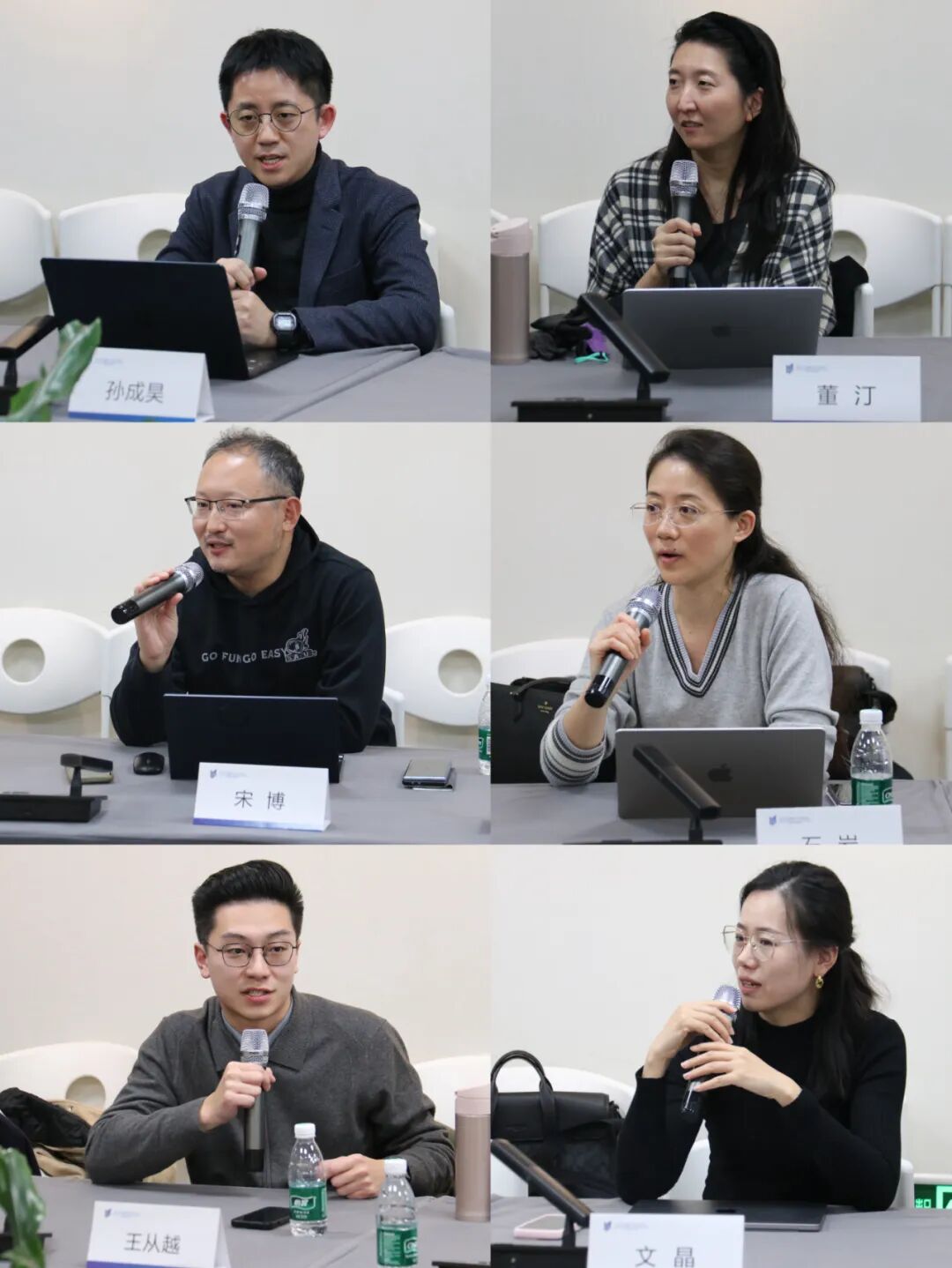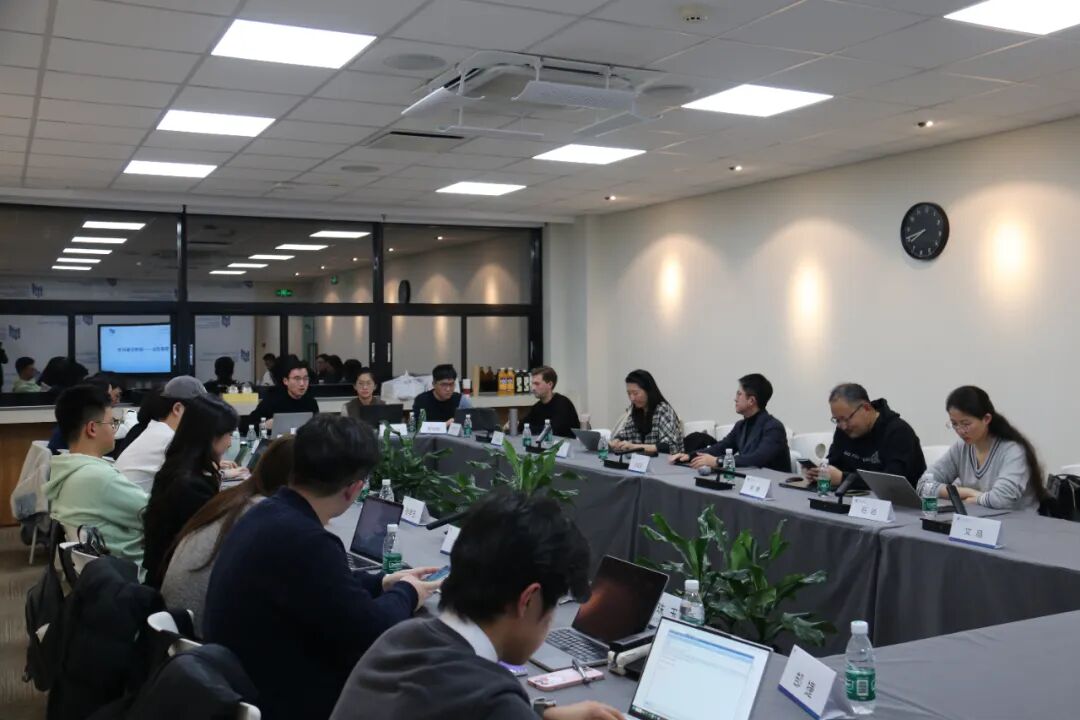On October 30, 2025, the Center for International Security and Strategy (CISS) at Tsinghua University held the 6th “Academic Partner” Meeting for Strategic Youth. Fifteen participants from Tsinghua University, Peking University, the China Foreign Affairs University, and other institutions attended the event. Associate Research Fellows Sun Chenghao and Dong Ting, Assistant Research Fellows Shi Yan and Song Bo, Postdoctoral Fellow and Assistant Research Fellow Wen Jing, and Wang Congyue participated as mentors for the “Academic Partner” program. The meeting was chaired by Meng Qingyi, Minister of the Academic Department of the 6th cohort of Strategic Youth.

The meeting began with a speech by Meng Qingyi, who reviewed the positive role of previous “Academic Partner” programs in fostering a strong academic environment and empowering the pre-career development of Strategic Youth. Meng introduced the innovative mechanisms and arrangements for this year’s program, encouraging Strategic Youth and mentors to form partnerships based on shared research interests and topics, and to engage in academic research and forum activities.

Participants exchanged in-depth ideas on their research areas and cutting-edge topics, including U.S.–China relations, China–Europe relations, international organizations, technology politics, AI governance, conflict management, and strategic narratives.

Mentors offered tailored guidance based on their areas of expertise:
Wen Jing shared her research on U.S. diplomacy, Middle East diplomacy, and international communication, as well as her recent outreach activities. She encouraged Strategic Youth to practice writing commentaries as a way to develop academic thinking, strengthen writing skills, and enhance their ability to identify and analyze research questions.
Song Bo provided careful feedback on research topics and approaches. On common issues, he emphasized that research themes should be clear and concise. On individual topics, he suggested improvements in variable selection, consideration of causal mechanisms, and refinement of research frameworks. He praised the innovative and perceptive choices of Strategic Youth and encouraged them to explore underlying factors to produce comprehensive and mature research outcomes.
Wang Congyue highlighted the importance of establishing mentorship relationships and encouraged Strategic Youth to use academic research to address real-world issues. He shared his own research interests in Russia and Central Asia, Eurasian relations, and great power competition, motivating youth to explore diverse research directions and cultivate both academic and practical skills.
Dong Ting discussed insights from technology and international relations perspectives and engaged with Strategic Youth interested in great power technological competition. He stressed the connections among value legitimacy, existence legitimacy, and structural legitimacy in technology and international relations, noting that AI, due to its paradigm-shifting effects, provides a key research opportunity. He encouraged youth to explore AI security and technological standards from new perspectives.
Shi Yan shared research on the European Union and conflict management and provided guidance on refining research topics. He emphasized the importance of considering current hotspots and their implications for EU security, as well as multi-variable political dynamics within the EU, encouraging Strategic Youth to define research subjects clearly and explore core issues thoroughly.
Sun Chenghao shared progress on his research on U.S.–China relations, U.S.–Europe relations, and U.S. domestic politics, including commentaries, academic articles, and collaborative reports with foreign think tanks. In his summary, he emphasized the significance of the “Academic Partner” program as a platform for developing practical skills, encouraging Strategic Youth to participate in external communication, international cooperation, and diplomatic activities, gaining hands-on experience while developing academic capabilities.

The meeting provided a high-level platform integrating theory and practice, reflecting CISS’s long-term commitment to fostering young scholars and nurturing future talent in strategic research. By leveraging CISS’s think tank resources and mentor expertise, the program aims to support youth in international exchange, policy analysis, and academic training.
Looking ahead, the Strategic Youth Secretariat will continue to optimize program mechanisms, explore innovative interdisciplinary and cross-institutional activities, and build a more open, diverse, and shared exchange platform. The program will provide broader growth opportunities and resource support for Strategic Youth, enabling them to contribute insights and capabilities to global governance and strategic research.
